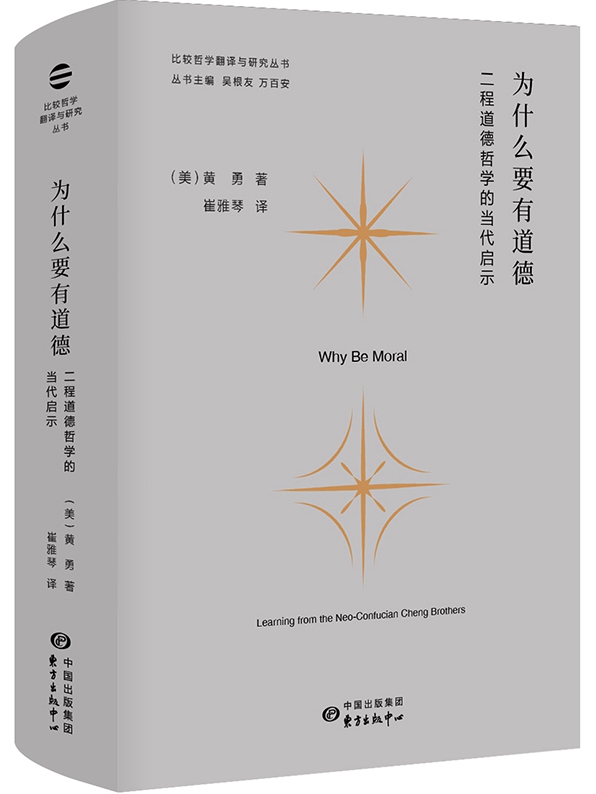
Why Be Moral: Learning from the Neo-Confucian Cheng Brothers is part of the series “Translation and Study of Comparative Philosophy” (Editors-in-Chief: Wu Genyou and Bryan Van Norden).
Normative ethics is essentially a moral philosophy. Back at the ancient times, egoists put forward the question, “Why should I be moral?” which means “What are the benefits of being moral?” or “What reasons do I have to be moral?” The question originated from Plato’s questions, “Why should I be just?” As justice is a form of virtue, what Plato intended to ask is “Why should I be a person with such virtue as justice?” However, as deontological ethics and consequentialism have come to be dominant since the modern times, the question gradually developed into “Why should I perform moral actions?” Since it is hard to find an answer, some philosophers regard this fundamental question in ethics as absurd and ignore it. Therefore, in order to give a proper answer, we should be back on the track of virtue ethics and interpret the question as “Why should I be a person with virtue, or a moral person?” But those who can give a proper answer from the perspectives of virtue ethics are not philosophers from the West like Plato and Aristotle. Instead, they are Confucian philosophers in virtue ethics, such as the Cheng Brothers. This is because they consider virtue is what makes a human. A person without virtue is defective or close to animals.
